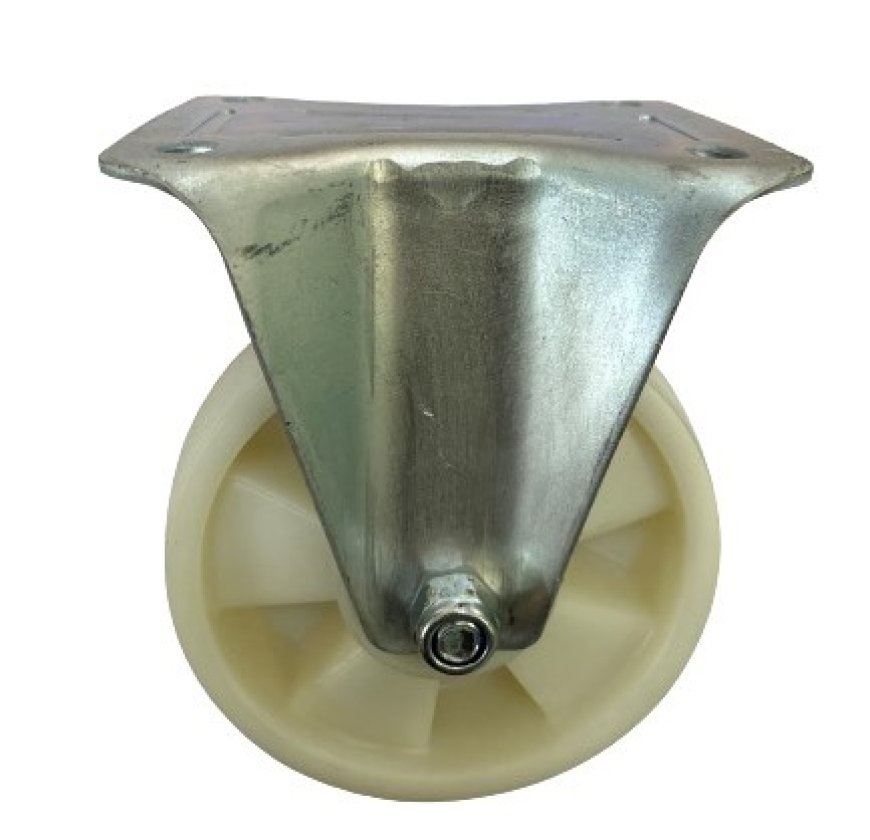Comparing Cast Iron Wheels with Other Wheel Materials
When it comes to selecting wheels for industrial applications, choosing the right material is crucial for ensuring durability, performance, and efficiency. Cast iron wheels have long been a preferred choice in various industries due to their strength and reliability. This blog compares cast iron wheels with other commonly used wheel materials, highlighting their strengths and applications.
Introduction to Cast Iron Wheels
Cast iron wheels are renowned for their robustness and ability to withstand heavy loads and harsh environments. They are widely used in material handling equipment, carts, and industrial machinery where durability and longevity are paramount. The inherent properties of cast iron, including high compressive strength and resistance to wear, make it a preferred choice for demanding applications.
Steel Wheels: Strength and Versatility
1. Strength and Load Capacity:
Steel wheels are known for their exceptional strength and load-bearing capacity. They can withstand heavy loads and rough surfaces, making them suitable for industrial applications such as mining, construction, and manufacturing. Steel wheels offer durability and reliability in demanding environments where impact resistance and stability are critical.
2. Versatility and Adaptability:
Steel wheels are versatile and can be customized to meet specific operational requirements. They come in various sizes and configurations, allowing for adaptability in different industrial settings. From solid steel wheels for heavy-duty applications to pneumatic steel wheels for enhanced shock absorption, this versatility caters to diverse operational needs.
Rubber Wheels: Cushioning and Noise Reduction
1. Shock Absorption and Traction:
Rubber wheels are preferred for their cushioning properties and ability to absorb shocks and vibrations. They provide excellent traction on smooth surfaces, making them ideal for indoor applications such as warehouses, hospitals, and retail environments. Rubber wheels offer a quiet and smooth ride, minimizing noise and floor damage.
2. Elasticity and Comfort:
The elasticity of rubber wheels allows for comfortable handling and reduces the impact on delicate cargo or equipment. They are commonly used in material handling carts, dollies, and light-duty equipment where maneuverability and ease of use are essential. Rubber wheels are available in various durometers and tread designs to optimize performance.
Polyurethane Wheels: Durability and Versatility
1. Abrasion Resistance and Durability:
Polyurethane wheels excel in abrasion resistance and durability, making them suitable for heavy-duty industrial applications. They offer superior load-bearing capacity and impact resistance compared to rubber wheels, making them ideal for outdoor environments and rough terrain. Polyurethane wheels are resistant to chemicals, oils, and solvents, enhancing their longevity.
2. Smooth Operation and Precision:
Polyurethane wheels provide smooth operation and precision movement, crucial for applications requiring controlled handling and stability. They are commonly used in automotive plants, assembly lines, and manufacturing facilities where precise maneuverability and low rolling resistance are necessary. Polyurethane wheels offer a balance of durability and performance in demanding environments.
Comparison with Cast Iron Wheels
1. Strength and Load-Bearing Capacity:
Cast iron wheels and steel wheels are comparable in terms of strength and load-bearing capacity. Both materials can withstand heavy loads and harsh conditions, making them suitable for industrial applications where reliability is critical. Cast iron wheels offer high compressive strength and resistance to wear, making them durable over extended periods.
2. Environmental Conditions and Maintenance:
Cast iron wheels are preferred in environments where exposure to heat, moisture, or abrasive materials is common. They require minimal maintenance and offer long-term reliability, making them cost-effective in the long run. Steel wheels may require surface treatments to prevent corrosion, depending on the environmental conditions.
3. Application Specificity:
While steel wheels offer versatility and adaptability, cast iron wheels are chosen for applications requiring specific properties such as high compressive strength and resistance to wear. Cast iron wheels excel in heavy-duty applications where durability and longevity are paramount, while steel wheels provide flexibility across a broader range of industrial settings.
Conclusion
In conclusion, the choice between cast iron wheels, steel wheels, rubber wheels, and polyurethane wheels depends on specific operational requirements, environmental conditions, and budget considerations. Each material offers unique properties and advantages tailored to different industrial applications. Cast iron wheels remain a cornerstone in heavy-duty industries due to their unparalleled strength, durability, and resistance to wear, making them a reliable choice for industrial mobility solutions.
By understanding the strengths and applications of each wheel material, leading castor wheel manufacturers and exporters can provide tailored solutions that optimize performance, efficiency, and safety in industrial operations. As industries evolve, the selection of the right wheel material continues to play a crucial role in enhancing productivity and minimizing operational downtime

 hollandsmith157@gmail.com
hollandsmith157@gmail.com 











